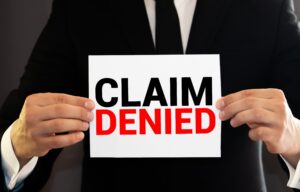Florida is among a handful of states in the U.S. that use a no-fault auto insurance system. This means that all motorists are required by Florida law to obtain personal injury protection or PIP, insurance coverage. This insurance coverage affects how you’ll move forward and obtain compensation for certain losses after a motor vehicle crash in Florida.
Read on for a complete guide to Florida’s PIP coverage and what you need to know as a driver. Continue reading “Navigating Florida’s PIP Coverage: What You Need to Know”


 After being in a car accident, it can be challenging to manage medical care, insurance claims, auto repairs, and your regular responsibilities. One step you can take to manage these stressors is scheduling a meeting with a car accident lawyer. Your attorney can speak directly with your insurance company and work to obtain your rightful compensation for any losses related to the crash.
After being in a car accident, it can be challenging to manage medical care, insurance claims, auto repairs, and your regular responsibilities. One step you can take to manage these stressors is scheduling a meeting with a car accident lawyer. Your attorney can speak directly with your insurance company and work to obtain your rightful compensation for any losses related to the crash.  In a perfect world, your insurance company would pay you the compensation you deserve, no questions asked. Unfortunately, in reality, that’s simply not the case.
In a perfect world, your insurance company would pay you the compensation you deserve, no questions asked. Unfortunately, in reality, that’s simply not the case.  A denial notice from your insurance company after an auto accident is never welcome, especially as you’re trying to manage other post-crash stressors. But, rest assured: if an insurance company denies your claim, there are other steps you can take to receive compensation.
A denial notice from your insurance company after an auto accident is never welcome, especially as you’re trying to manage other post-crash stressors. But, rest assured: if an insurance company denies your claim, there are other steps you can take to receive compensation.  The time after an auto accident can be a whirlwind and a stressful one at that. But, during this crucial period, you may need to file an insurance claim to recover compensation for damages.
The time after an auto accident can be a whirlwind and a stressful one at that. But, during this crucial period, you may need to file an insurance claim to recover compensation for damages. Everyone has the right to a safe work environment. In Florida, employees are legally protected from hostile work environments, but many don’t understand the extent of their rights under state and federal law.
Everyone has the right to a safe work environment. In Florida, employees are legally protected from hostile work environments, but many don’t understand the extent of their rights under state and federal law. The Homeowner Claims Bill of Rights defines the rights and responsibilities of homeowners insurance policyholders in Florida. Florida’s law requires insurance companies to provide residential policyholders with this document within 14 days after the policyholder reaches out about a claim. The Bill of Rights helps protect homeowners during the
The Homeowner Claims Bill of Rights defines the rights and responsibilities of homeowners insurance policyholders in Florida. Florida’s law requires insurance companies to provide residential policyholders with this document within 14 days after the policyholder reaches out about a claim. The Bill of Rights helps protect homeowners during the  Florida’s law requires all motorists to obtain at least $10,000 in personal injury protection insurance and $10,000 in property damage liability insurance. However, given that
Florida’s law requires all motorists to obtain at least $10,000 in personal injury protection insurance and $10,000 in property damage liability insurance. However, given that  Florida Governor Ron DeSantis signed House Bill 837, titled “Civil Remedies”, on March 24, 2023. This new law greatly impacts negligence cases going forward. In understanding the changes outlined in HB 837, the general public can respond more effectively when moving forward with a negligence case. Below is not an exhaustive list of changes outlined in HB 837, but does highlight several of the most notable provisions of the new law.
Florida Governor Ron DeSantis signed House Bill 837, titled “Civil Remedies”, on March 24, 2023. This new law greatly impacts negligence cases going forward. In understanding the changes outlined in HB 837, the general public can respond more effectively when moving forward with a negligence case. Below is not an exhaustive list of changes outlined in HB 837, but does highlight several of the most notable provisions of the new law.